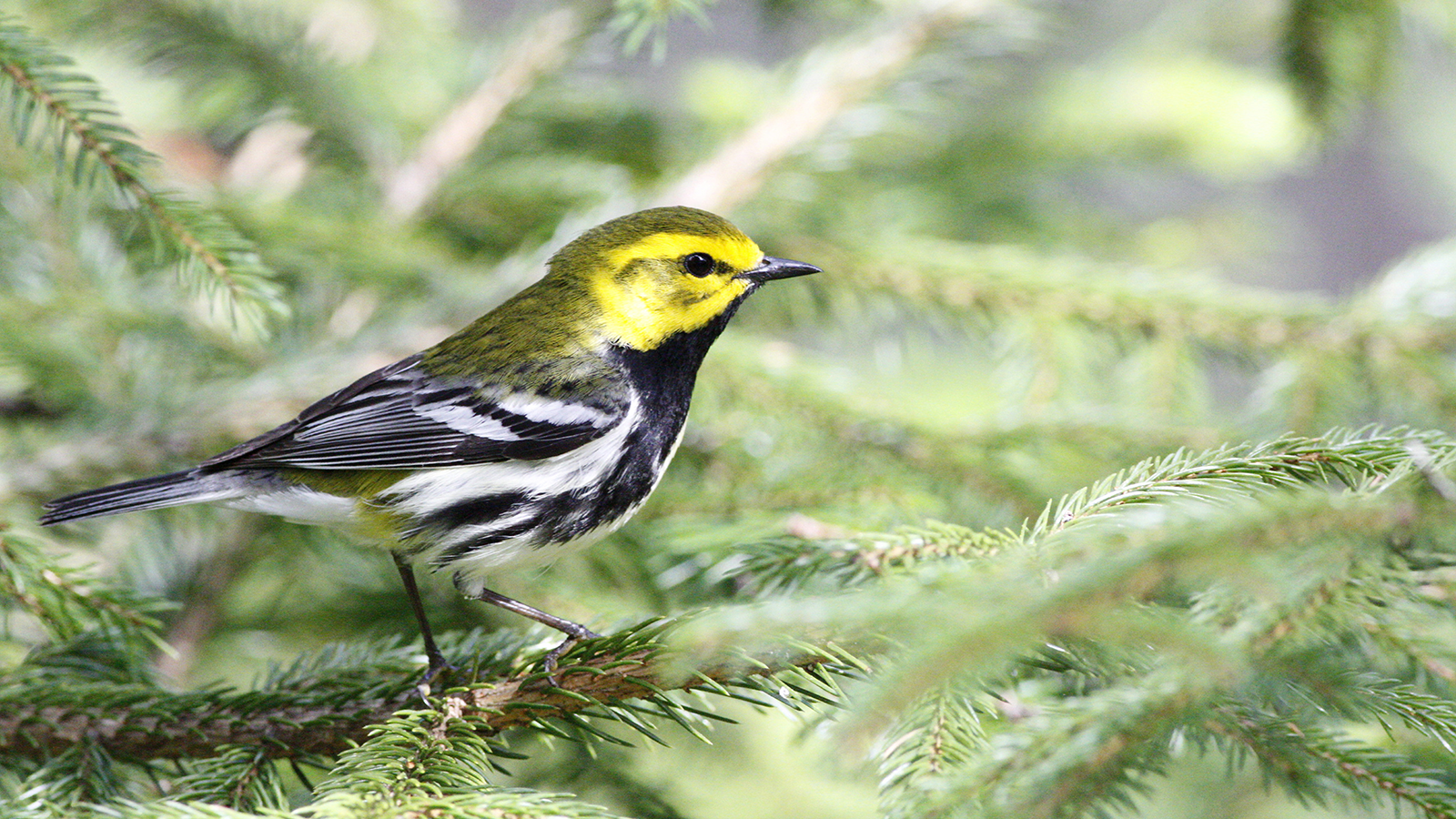
Coastal Conversations Radio Program: How Fame Changed MacArthur’s Warblers
Coastal Conversations show: January 24, 2025
WERU 89.9 in Blue Hill and 99.9 in Bangor
Guest hosts
Trevor Grandin, Cathy and Jim Gero Acadia Early Career Fellow in Science Communication, Schoodic Institute
This Episode
In this episode of Coastal Conversations, we feature Schoodic Institute’s podcast, Sea to Trees, and revisit a monumental piece of research that took place decades ago in Acadia National Park. In 1956, scientist Robert MacArthur sat in an evergreen forest observing warblers and recording data that would change the field of ecology. Over sixty years later, students are using MacArthur’s research to understand how birds coexist and how breeding locations change over time. What made MacArthur’s study so successful and why has it left such a mark on the field?
We talk with University of Oklahoma professor Dr. Michael Kaspari about the influence of MacArthur’s study and how he uses it to teach the next generation of scientists. We also hear from Bik Wheeler, wildlife biologist in Acadia National Park, who revisited MacArthur’s study for his master’s thesis. Finally, we marvel at the warblers in the same stand of trees that MacArthur did with College of the Atlantic student Fiona Young, who replicated Wheeler’s field work in the summer of 2024.
Coastal Conversations is supported by Maine Sea Grant in partnership with Schoodic Institute and The First Coast.
Guests
Michael Kaspari, Professor, University of Oklahoma
Bik Wheeler, Wildlife Biologist, Acadia National Park
Fiona Young, Student, College of the Atlantic
For more information
Knowing Your Warblers: Thoughts on the 50th Anniversary of Macarthur by Michael Kaspari
Spruce-Woods Warblers Revisited: 60 Years Later, the Cast of Characters Has Changed by Irby Lovette
Schoodic Notes – Bird Sounds of Acadia
